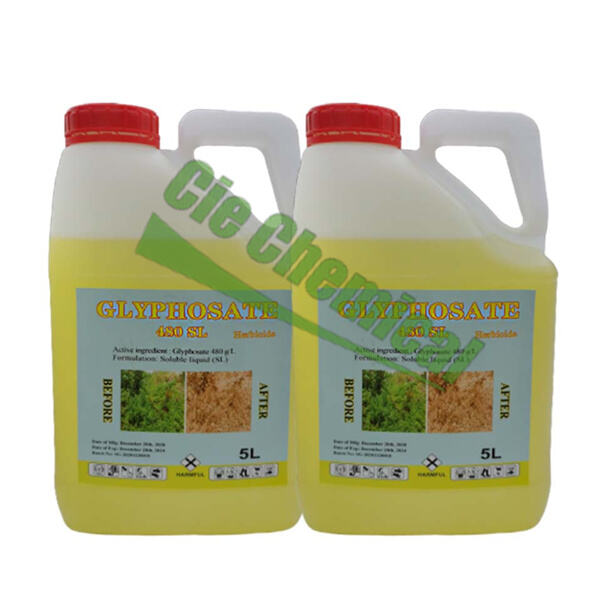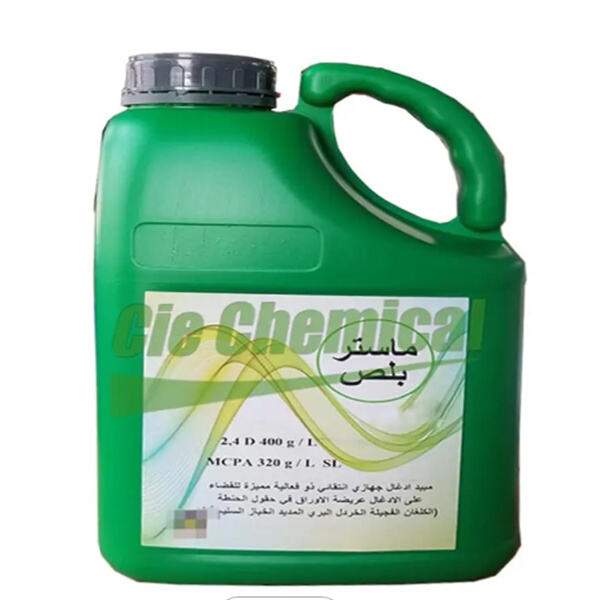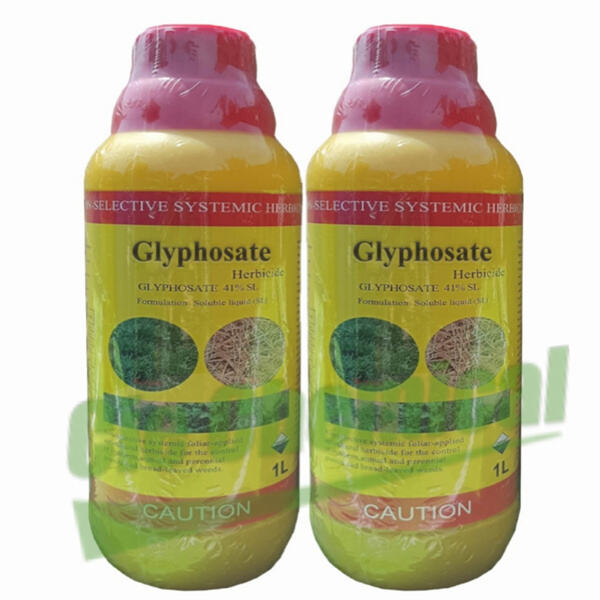Maintenant, examinons quelques détails concernant deux types d'herbicides : les herbicides sélectifs et non sélectifs. Un herbicide est un type de produit chimique qui tue les plantes indésirables, communément appelées mauvaises herbes. Les mauvaises herbes peuvent pousser très rapidement et envahir les zones où nous souhaitons faire pousser nos bonnes plantes (fleurs, légumes). C'est là que les herbicides deviennent des outils pratiques pour les agriculteurs et les jardiniers.
Les herbicides sélectifs sont conçus pour agir uniquement contre certaines plantes. Ils peuvent tuer certaines mauvaises herbes sans endommager toutes les plantes. Par exemple, un herbicide particulier tuera les mauvaises herbes à larges feuilles (qui ont des feuilles larges) mais ne tuera pas l'herbe (qui a des feuilles longues et étroites), ce type est appelé sélectif. Cela est extrêmement bénéfique pour les agriculteurs ou jardiniers car cela leur permet d'éliminer les mauvaises herbes gênantes tout en laissant leurs bonnes plantes indemnes.
Puis il y a les herbicides non sélectifs lorsqu'il est temps de parler de ciblage. De tels herbicides sont extrêmement puissants et détruiront toute végétation avec laquelle ils entrent en contact. Un exemple est le glyphosate, qui est un herbicide systémique et non sélectif qui tuera à la fois les mauvaises herbes que vous souhaitez éliminer et toutes les plantes que vous souhaitez conserver. Cela peut être dangereux si vous n'êtes pas prudent lors de son utilisation, car cela nuira également à vos belles plantes.
Beaucoup d'avantages, ou bons points, des herbicides sélectifs. Un grand avantage est qu'ils sont plus respectueux de l'environnement. Comme ils ne ciblent que certains types de plantes, ils ne représentent pas un danger pour les plantes et les animaux que nous souhaitons protéger. Cela signifie moins de risques dans les jardins et les fermes. De plus, certains types de mauvaises herbes peuvent être assez sensibles aux herbicides sélectifs. Les herbicides non sélectifs (ceux qui tuent absolument tout dans votre jardin) peuvent parfois être une meilleure solution, mais encore une fois, certaines mauvaises herbes restent indemnes !

Les herbicides non sélectifs comme le glyphosate sont plus polyvalents, car ils tueront n'importe quelle plante avec laquelle ils entrent en contact. Ils sont rapides, et peuvent rapidement éliminer de vastes étendues de végétation. Cela est particulièrement utile pour les gros travaux, comme défricher des forêts ou de grands champs. Néanmoins, nous devrions prendre en compte qu'ils sont très nocifs pour la nature et la faune sauvage environnante, donc de tels endroits doivent être utilisés avec le plus grand soin.

Le choix entre un herbicide sélectif ou non sélectif dépend de vos besoins précis. Herbicides Sélectifs — Si le problème est limité avec seulement quelques types d'adventices, un herbicide sélectif pourrait être votre meilleure solution. Il vous permettra de cibler uniquement ces mauvaises herbes sans endommager vos plantes saines. Cependant, si votre jardin est une jungle infestée de mauvaises herbes, vous pourriez envisager d'utiliser quelque chose de non sélectif.

Ici, nous vous avons parlé des herbicides sélectifs qui sont très utiles mais présentent également des inconvénients. Le principal problème avec eux est qu'ils ne fonctionnent généralement que contre certains types de mauvaises herbes. Dans certaines circonstances, les adventices développent une résistance à certaines classes d'herbicides. Maintenant, si vous utilisez un seul herbicide pendant plusieurs années, ces types de mauvaises herbes resteront sous forme de racines, et la prochaine fois, de nombreux produits alimentaires repousseront comme avant, sans influence réduite de l'herbicide.
Dans le monde de la CIE, vous trouverez une excellente fabrication d'agrochimiques et des services techniques, car nous nous concentrons sur les produits chimiques et la recherche de nouveaux produits pour les populations du monde. Au début du 21ème siècle, notre usine se concentrait uniquement sur les marques nationales. Après plusieurs années de développement, nous avons commencé à explorer les marchés internationaux, tels que l'Argentine, le Brésil, le Suriname, le Paraguay, le Pérou, l'Afrique, l'Asie du Sud, etc. En 2024, nous avons établi des relations commerciales avec des partenaires de plus de 39 pays. En même temps, nous serons déterminés à apporter davantage de bons produits dans encore plus de pays.
Les produits pesticides que nous vendons sont conformes aux réglementations et normes nationales en vigueur. Nous assurons la fiabilité et la stabilité de la qualité des produits. 1. Conseil prévente : Nous offrons aux clients un service de conseil professionnel avant-vente pour répondre à leurs questions concernant l'utilisation, la dose, le stockage et d'autres problèmes relatifs aux vêtements et aux médicaments. Les clients peuvent obtenir notre aide par téléphone, e-mail ou consultation en ligne avant l'achat. 2. Formation après-vente : Nous organisons régulièrement des formations sur l'utilisation des pesticides, y compris leur utilisation correcte, les précautions à prendre, les mesures de protection, etc., afin d'améliorer les compétences et la sensibilisation des clients en matière d'utilisation des pesticides. 1/3 3. Visites après-vente : Nous effectuons des visites après-vente régulières auprès de nos clients pour comprendre leur utilisation et leur satisfaction, recueillir leurs avis et suggestions, et améliorer continuellement nos services.
1. Augmentation de la production : Les pesticides peuvent contrôler efficacement les ravageurs, les maladies et les mauvaises herbes, réduisant ainsi les niveaux de nuisibles, augmentant les rendements et assurant la sécurité alimentaire. 2. Économie de main-d'œuvre et de temps : L'utilisation de pesticides peut réduire les coûts en main-d'œuvre et en temps pour les agriculteurs, améliorant efficacement l'efficacité de la production agricole. 3. Garantie des bénéfices économiques : Les pesticides peuvent prévenir le SIDA, assurer les récoltes et apporter d'excellents bénéfices économiques dans la production agricole. 4. Assurer la sécurité et la qualité alimentaire : Les pesticides peuvent garantir la sécurité et la qualité des céréales et des aliments, éviter la survenue des épidémies et protéger la santé des populations.
Shanghai CIE Chemical Co.,ltd. a été fondée le 28 novembre 2013. CIE se concentre sur les exportations de produits chimiques depuis environ 30 ans. En même temps, nous serons dévoués à apporter plus de bons produits dans plus de pays. De plus, notre usine a une capacité annuelle de production de glyphosate d'environ 100 000 tonnes et d'acétochlor d'environ 5 000 tonnes. De plus, nous collaborons également avec certaines entreprises multinationales pour produire du paraquat et de l'imidaclopride. Par conséquent, notre qualité est de classe mondiale. Actuellement, les formes galéniques que nous pouvons produire incluent SL, SC, OSC, OD, EC, EW, ULV, WDG, WSG, SG, G, etc. En même temps, notre département R&D s'engage toujours dans le développement de nouvelles formules pour produire certains produits chimiques mélangés selon les besoins du marché. De cette manière, l'efficacité de nos nouveaux produits peut répondre aux besoins des consommateurs finaux dans le monde entier. Nous considérons toujours cela comme notre responsabilité. De plus, jusqu'à présent, nous avons soutenu l'enregistrement de plus de 200 entreprises dans 30 pays dans le monde. En même temps, nous effectuons des rapports GLP pour certains produits.